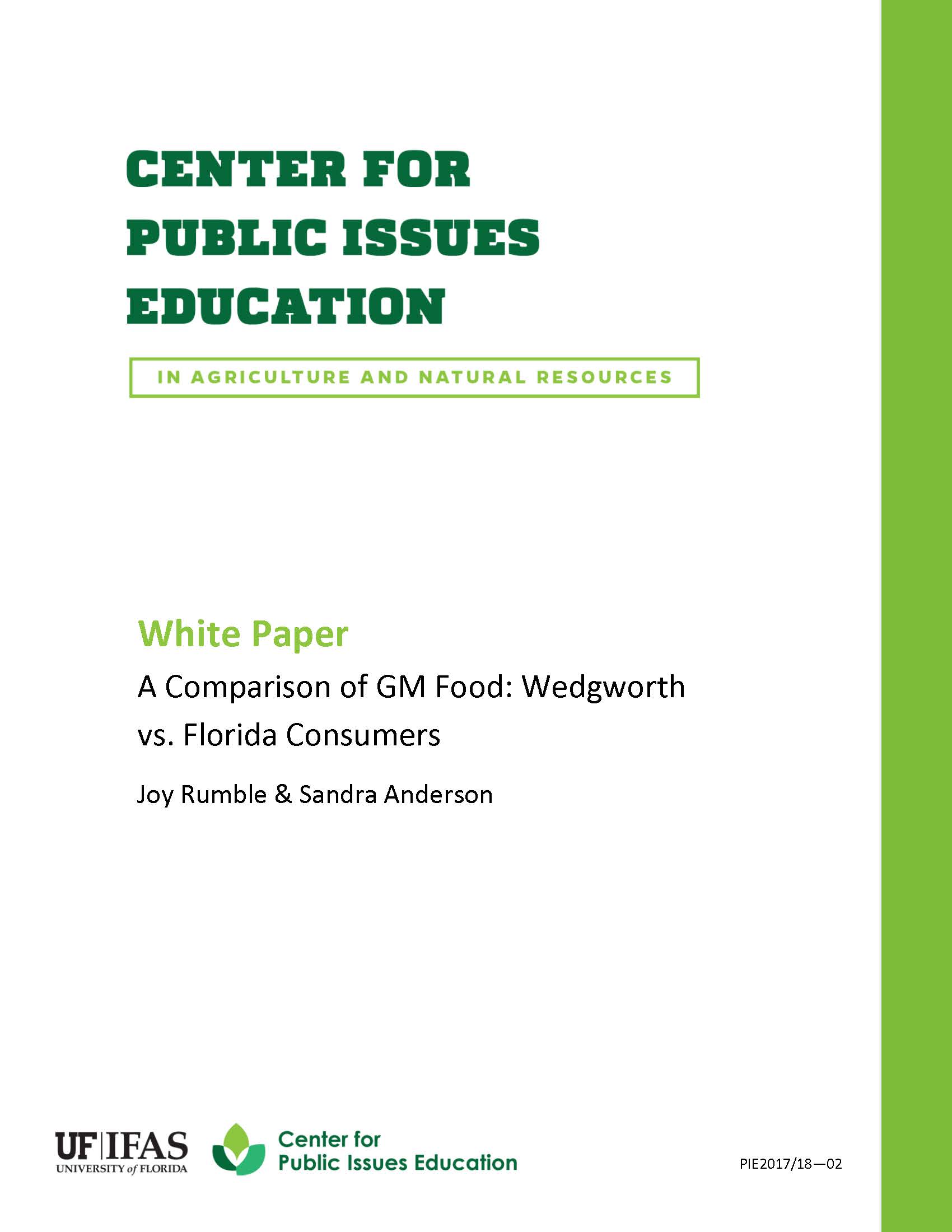
PIE CENTER STUDY – A Comparison of GM Food: Wedgworth vs. Florida Consumers
The UF/IFAS Center for Public Issues Education
(PIE Center)
has recently released a study comparing the attitudes, perceptions, and opinions of Florida consumers around genetically modified food issues with those of current and past participants of the
Wedgworth Leadership Institute for Agriculture and Natural Resources.
The Study:
In Florida and throughout the United States, food-related issues such as the use of new food technologies clomid precio continue to be a top concern among consumers. Since consumers’ opinions regarding genetically modified food issues is important to both the sustainability of the agricultural industry and human life as we know it, the UF/IFAS Center for Public Issues Education (PIE Center) initiated a study to explore the attitudes, perceptions, and opinions of Florida consumers around genetically modified food issues. This survey examined Florida consumers’ (1) perceptions of genetically modified food, (2) intent to purchase genetically modified food, (3) familiarity of food policies, and (4) their information seeking behaviors with regard to genetically modified food. This survey was also replicated with Wedgworth respondents (current classes and alumni) to examine what they thought about these same 4 topics. Their attitudes, perceptions, and opinions of genetically modified food issues were then compared to those of Florida consumers.
The Methods:
In October 2015, an online survey was distributed to a representative sample of Florida consumers using non-probability sampling. Qualtrics, a survey software company, distributed the survey link to 1,154 Florida consumers, 18 or older. Of these potential respondents, 500 provided completes responses. To ensure that the data were representative of the Florida population according to the 2010 U.S. Census (seen in Table 1), the data were weighted to balance geographic location, age, gender, and race/ethnicity data with the Florida population (Kalton & Flores-Cervantes, 2003). Weighting procedures are commonly used in non-probability samples to compensate for selection, exclusion, and non-participation biases (Baker et al., 2013).
In May 2017, an online survey was distributed to 259 potential respondents from the Wedgworth agricultural leadership group. An initial emailwas sent to inform the potential respondents about the survery and request their participation. Up to 4 follow up emails were sent to encourage participation from those respondents who had not completed prior requests. This was done in an effort to attain a high response rate. Of the 259 potential respondents, 110 completed responses were recorded, resulting in a 42.5% response rate. Wedgworth respondents’ attitudes, opinions, and perceptions of genetically modified food issues were then compared with those of Florida consumers.
Click on the report icon to read the results of the study!



You must be logged in to post a comment.